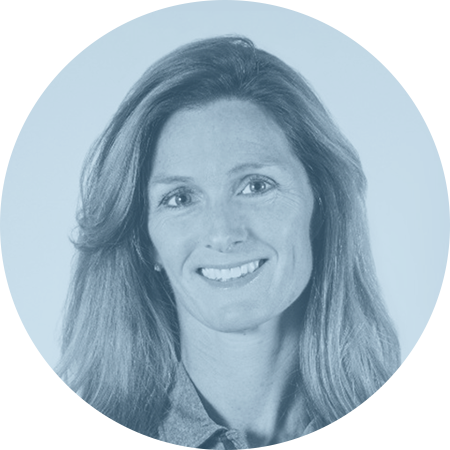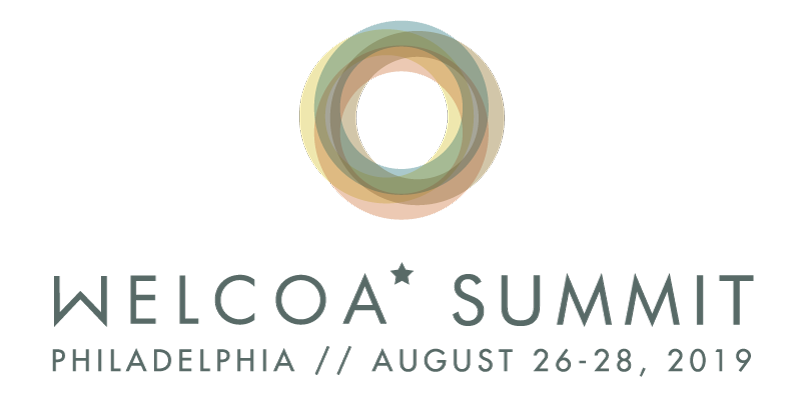During the COVID-19 pandemic, people spent a lot of time isolated and indoors, which helped foster an environment where some people now feel lonelier than ever. The result is a loss of social connectedness—the degree to which people feel the social connections and relationships in their lives to satisfy their wants and needs. When social…
Your Welcoa membership has expired.
Three Key Words for Expanding Your Value as a Wellbeing Professional
The wellbeing industry is in the midst of a significant evolution. Many wellbeing professionals are thinking differently about health, human nature and behavior change – and doing their best to figure out how to apply this new thinking to increase the impact they can have on the lives of those they serve. As this transformation is occurring, there’s lots of conversation about how wellbeing initiatives need to change in order to better align with the realities of human nature and become more meaningful and relevant to those who might benefit from them.
What’s often missing in these conversations though is how wellbeing professionals themselves need to grow and adapt, not just to keep up with the change, but to confidently lead their companies or communities into the next generation of wellbeing. This is essential to consider because of course we can’t contribute to a paradigm shift “out there” unless we’ve had a paradigm shift “in here”. Changing the status quo in an industry where there’s so much outdated thinking requires that we do important inner work to develop the knowledge, skills, and courage that effectively leading transformation demands.
In our upcoming intensive session, Next Generation Wellness: From Theory to Practice, Jen Arnold and I will be exploring the challenges and promises of expanding your value with an awesome group of wellbeing professionals – and how to have greater impact and influence. While the session will be chock full of ideas, activities and practical strategies, we’ll be focusing on three key words: broaden, build, practice.
Here’s a preview:
Broaden your knowledge and skillset.
While the old cliché “knowledge is power” has always seemed to me a silly oversimplification, I do think knowledge is the foundation upon which everything else is built. If you want to have more impact and influence with those you serve, keep up with the transformation the industry is going through – and maybe even be on the forefront of change – it’s essential to expand your intellectual and professional tool box.
The good news is that there’s a long list of options for broadening because so many things you can know more about will help you expand your value. I’ve taken a deep dive into many things I wasn’t sure would translate to added professional influence simply because they were interesting to me (all 37 episodes of Malcom Gladwell’s podcast Revisionist History anyone?), but they always seem to.
Here’s a short list to consider:
- Coaching skills
- Leadership development
- Social determinants of health
- Mental health
- Organizational development
- Resilience
- Benefits plans
- Mindfulness
- Neuroscience
- Healthcare and healthcare costs
- Group facilitation
- Consulting skills
If broadening your knowledge and skillset seems like a good idea, but you’re not sure where to start, ask yourself: What interests me? What do I need to know about that I don’t currently? What else would I like to be doing for which I need new skills? What knowledge and skills do I already have that I’m not currently leveraging? How could I add more value in my role at work or to my company’s most important priorities and what do I need to know in order to do that? Then choose the most compelling answer and start there.
Build relationships and alliances.
Even if you’re the sharpest knife in the block and you’re a master at virtually everything, you’ll only get so far if you’re trying to change the status quo on your own. Leading a team, department or organization in a different direction when the current paradigm is so stuck requires that you build trusting and fruitful relationships with others who have complimentary skillsets, influence different than your own and valuable insights.
As a workplace wellness professional trying to make a change in your organization, for example, this might mean you need to get to know your HR team better and understand their perspectives and aims for the organization. It might mean you need to connect with formal leaders of the organization to understand what’s important to them and how wellbeing can support their needs. It might mean you need to build relationships with a statistician who’s great with numbers, an expert who’s passionate about weight-neutrality, or a colleague who’s already done some great work course-correcting for incentives in her organization. Or all of the above. And more.
Over time, as you build relationships with others who share your vision or support the work you’re doing, you create a network that allows you access to people you wouldn’t otherwise have access to, information you wouldn’t otherwise know, and – most importantly – a broad and deep network of others you respect, trust and can connect with from time to time.
Practice intentional conversations.
Ultimately, it doesn’t matter what you know or how passionate you are; if you can’t get in front of the right audience and convey your message powerfully, your impact and influence will be limited. So honing your communication skills is essential.
Unfortunately, communicating new ideas is not something that comes naturally to most people, especially when the ideas we’re sharing may be faced with resistance or might require that we step into circles we’re not accustomed to being in. If we’re not intentional about our conversations, or if we haven’t practiced the art of powerful communication, we’re likely to make a few common mistakes, including:
- Sharing too much information at once or sharing information in a way that’s difficult for our audience to understand or resonate with
- Over-focusing on facts and under-focusing on connection, questions, listening, and stories
- Needing to be right or show up as “the expert”
- Being noticeably defensive or insecure
In our previous live webinar version of the Next Generation training, we had the good fortune to bring in a guest speaker, Jeff Tippet, who is an expert in persuasive communication. Jeff shared some valuable ideas around persuasive communication from his new book, Unleashing Your Superpower: Why Persuasive Communication is the Only Superpower You’ll Ever Need.
While I’ll never do justice to the full content he shared, Jeff’s main takeaways resonated with the wellbeing professionals in that training as a framework for avoiding common communication pitfalls and developing a more powerful way to shape change through their own interactions with others. Two keys I thought were most helpful:
Craft a simple message that sticks with your audience.
Speaking from experience, I know it’s tempting when you’re passionate about something to want to share every detail with others, with the hope that if they just only knew what you know, you’d immediately have buy in. It rarely works like this, though, and information-overload creates a mental and emotional shutdown for your audience that will lose them before you even have a chance. So craft a simple message is about getting laser-focused on what’s critical to share, removing everything else, and speaking in plain, jargon-free language.
If you’re a wellbeing professional and you’re communicating with business leaders, HR professionals or other colleagues about changing the status quo, this means you need to get really clear on the facts of your business case – and then PRACTICE that message out loud until it’s short and succinct. This idea is summed up nicely through a few words credited to Albert Einstein:
“If you can’t explain something simply, you don’t know enough about it.”
Focus on your audience’s win and create a bond.
In our training, I shared a story from my own career of a time when I did just the opposite of this. I was in a meeting with leaders and HR professionals from a potential client and got overly focused on being right, demonstrating my knowledge and changing their minds. I didn’t ask any questions to understand this group’s needs, perspectives, and problems. I didn’t pay attention to their non-verbal cues or how I might need to modify my message in the moment to better align. Needless to say, it didn’t go well and I certainly did not change any minds!
So the key here is to enter into difficult conversations with the intent to first connect and learn … and then share. You can only know how to frame your conversation if you first understand your audience. If you’re a wellbeing professional considering or facing difficult conversations that will be required to transform the direction of your program, company or community initiatives, ask yourself: How can I make sure I enter each conversation with the intention to connect and learn first? What does my audience know or think they know? What problems are they trying to solve? What would a “win” look like to them? What questions might I ask to find out more? What’s critical in the conversation and what can I remove or safe for later?
Leading the Next Generation
If you’re a wellbeing professional and you’d like to take a deeper dive, consider joining Jen and me for our one-day intensive session at this year’s WELCOA summit.
Ultimately, leading your company, clients and our industry into the next generation requires not just a shift in practices, but an inner shift in each one of us. So what does the next generation of YOU as a wellbeing professional look like? Join us to discover!

About Rebecca Johnson, MS
Co-Founder and Chief Integrator, ViDL Solutions
Rebecca Johnson is a seasoned expert in individual and organizational wellbeing. Blending her educational background in psychology with the practical knowledge she has gained from 25 years of experience in health promotion and business leadership, Rebecca brings a unique perspective and skillset to her work with companies ready to create a culture where people live and work to their potential..

Join us for the 2019 WELCOA Summit and attend Jen and Rebecca’s intensive workshop on August 26!




